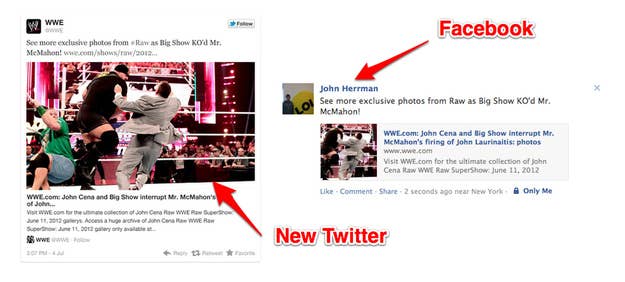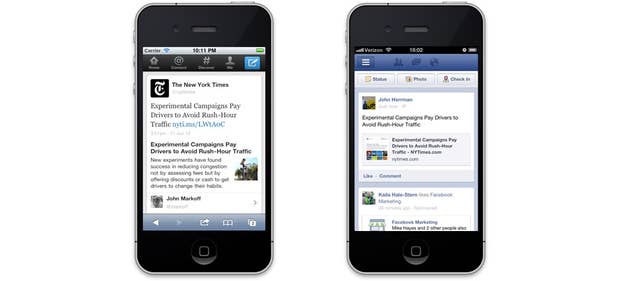
Over the last few years, Facebook has changed from a static directory to a real-time feed. It's a viscous feed, full of images and weight and commentary, and it moves slowly compared to my Twitter stream. But it moves. Oh, and there are more ads now.
Over the last few years — year, really — Twitter has begun changing from a free-gushing real-time text stream into something more viscous, adding images, a personalized recommendation engine, weekly digests and, today, inline article previews, or "Expanded" tweets. My Twitter feed is still a manic feed of information, but it's growing in depth and width. Oh, and yeah, there are more ads now.
Facebook is a much more complex tool than Twitter, and Twitter is far more focused than Facebook. It would be stretch to say that Facebook as a whole is becoming much more like Twitter; it's really just the news feed function we're talking about here. But with the new Twitter expanded tweets in mind, here's a thought experiment worth trying,:
Imagine your Facebook friends were your Twitter friends and your Twitter friends were your Facebook friends. A full swap. Think about what that would do to what you post, and what it would do to your feeds. Now think about what that says about each site.

The vastly different experiences we have on Facebook and Twitter are gradually becoming less about the way the sites work and more about the groups of people we use them to associate with. Twitter, for me, is aspirational and forward looking: I follow a group of super-savvy of people, some of whom I know, many of whom I don't, and all of whom I want to follow. Facebook is chiefly backward-looking, an ongoing chronicle of what's going on with people I see every day, people I've fallen somewhat out of touch with, or people I have a responsibility to know about.
This also changes what we contribute, and how we look to others. On both sites, we're becoming less like people, and more like content providers.
